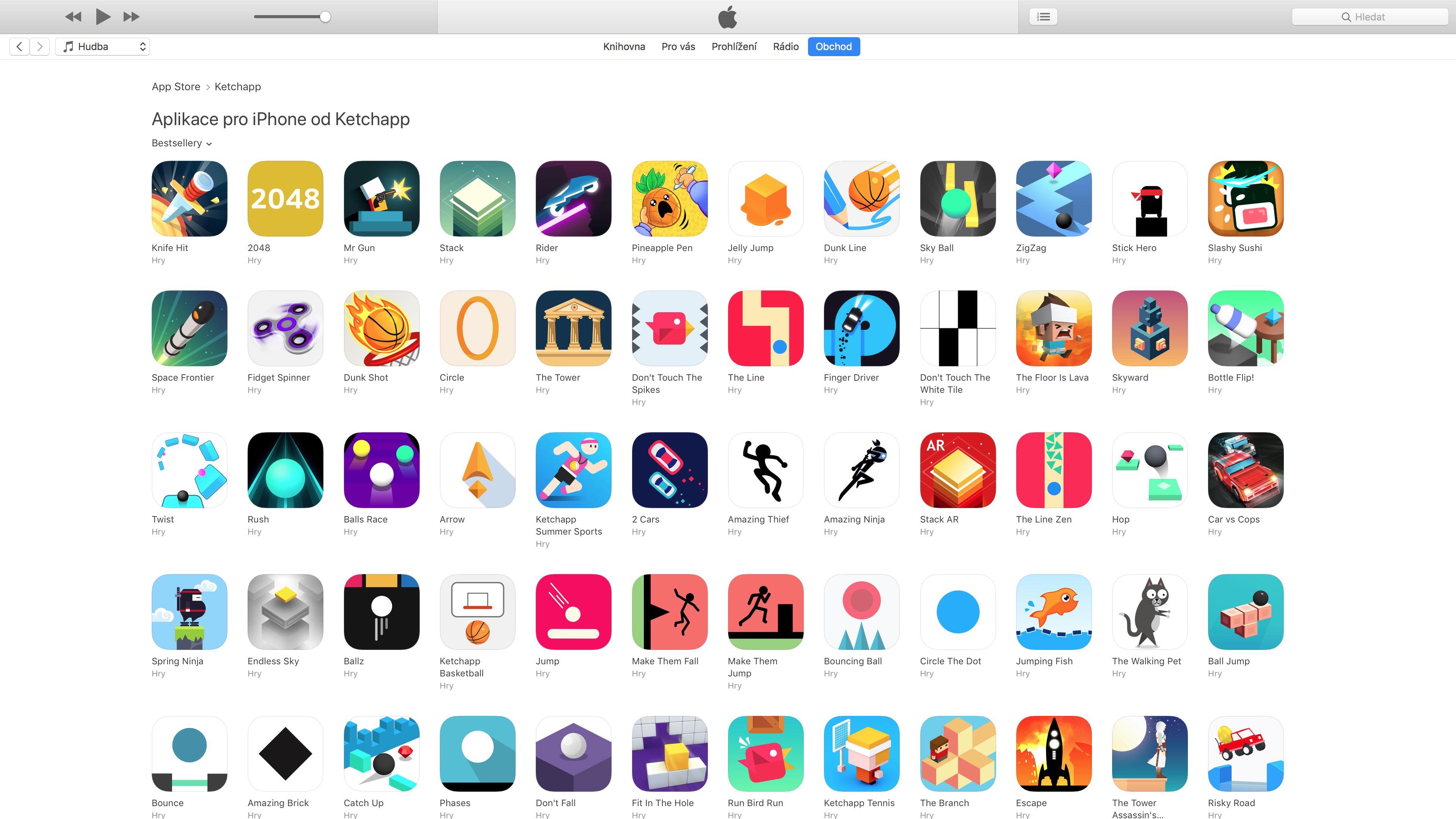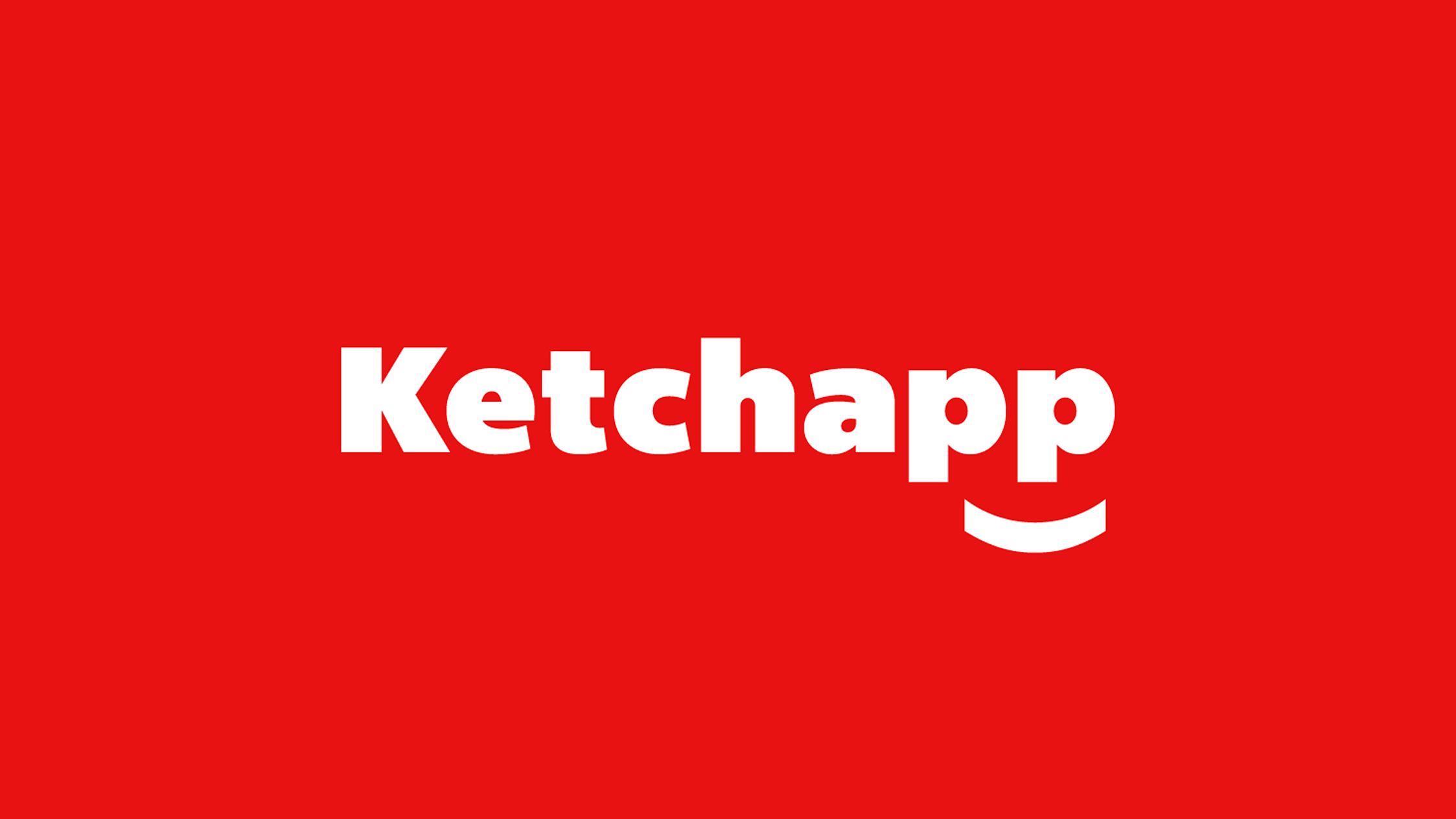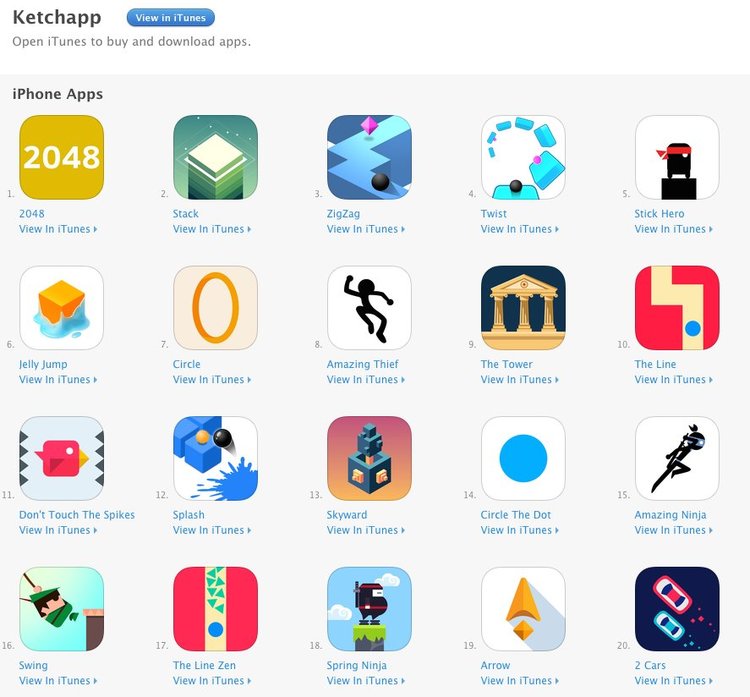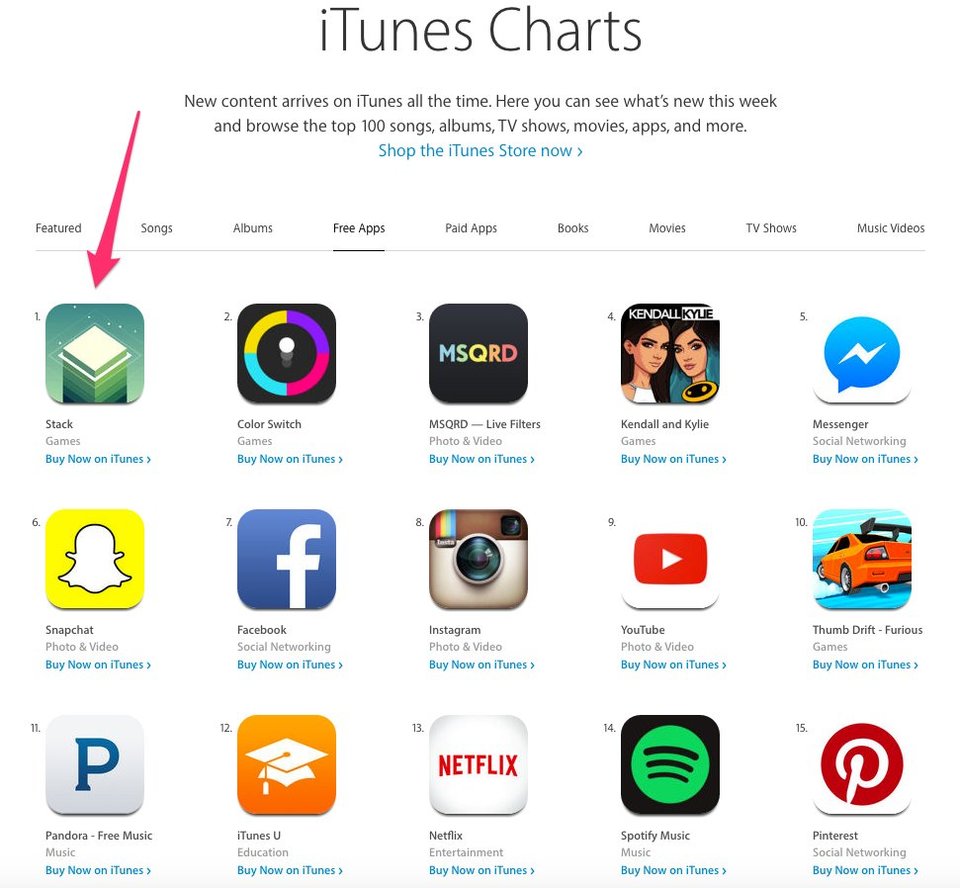Have you ever played the game "2048"? If not, you must have at least heard of her. It's simple at first glance, but highly addictive, and has gained an incredible number of fans around the world who spend every free moment sliding squares with numbers. Other seemingly simple games such as "ZigZag", "Twist" or "Stick Hero" are no less popular and addictive.
Family is the foundation
All these masterpieces - and about sixty others - are the work of five people from the French developer studio Ketchapp Games. They don't even need an office to develop their products. In the last quarter of 2015, Ketchapp Games was, according to data from Tower Sensor the fifth largest distributor of iPhone applications in the United States in terms of downloads. The secret of this success lies mainly in the combination of smart business, good estimations and well-thought-out tactics.
Ketchapp was founded by brothers Michel and Antoine Morcos in 2014. They don't appear much in public, but Antoine gave an online interview to North TechInsider.
In the case of Ketchapp, there is overwhelming agreement that it is undoubtedly an effective business model. The games that this small French company releases into the world are not actually created by it. Every week, Ketchapp receives about a hundred offers from various developers, and selects from them games that have the potential to become a megahit.
Ketchapp operators sometimes go through the App Store themselves looking for games they want to bring under their license. Around thirty studios around the world work for the "Ketchapp family". In many cases, this is a bet on uncertainty and it doesn't always work out, but Ketchapp has more successes than failures. "It's like in any business," says Antoine Morcos.
Undisputed hits include, for example, the already mentioned game "2048", which received 70 million downloads. "ZigZag" has been downloaded by 58 million users, "Stick Hero" by 47 million. In total, games produced by Ketchapp have had more than half a billion downloads.
Part of the success lies in the type of games that Ketchapp puts out into the world. "We don't make games for the typical gamer," states Morcos. "It's the same strategy Atari used with their arcade games.".

We have the virus for sure
According to Morcos, the game promotion strategy is simple. The company's co-founder says that part of the growth in popularity of Ketchapp's apps is organic, and Ketchapp doesn't pay for ads for its games. Instead, they rely on advertising within their own games in the form of pop-ups. "We prefer to rely on the natural growth of downloads," states Morcos. "If the game is bad, it won't spread."
When you launch one of Ketchapp's games, one of the first things you'll notice is an advertisement for another game from their production. For a small fee, users can remove these ads, but the revenue from these ads is the majority for Ketchapp. Advertising in these games is - as is the case with free apps - really blessed, both in the form of pop-ups and in the form of small banners at the top or bottom of the screen.
Ketchapp also develops considerable activity on social networks, which are a really powerful tool in this regard. Their Facebook page enjoys more than 2,2 million followers and features not only videos of people playing the aforementioned games, but also fun GIFs and responses to contributors. The company also offers retweets to those who send it a screenshot of a high score in one of its games.
But not everyone believes in the rumor about the viral spread of popularity of Ketchapp games. Jonathan Kay, founder and chief operating officer of Apptopia, is highly skeptical of this theory. “If organic promotion within existing users worked, why would giants like Disney or EA invest millions of dollars in acquiring new customers?” Kay asks suggestively. "I don't think it would be that simple." "But we don't make games like Disney or EA - we make games for everyone, with a higher appeal," responds Morcos.
However, Ketchapp refuses to provide any information about its revenue, relying on the claim that competitors are trying to copy their business model. But according to Kay, the company's monthly income could be more than $6,5 million. “There are ads in those games,” Kay reminds. "They make millions.". Antoine Mocros calls Kay's estimate "erroneous".
The Clone Wars?
Ketchapp faces accusations of copying games from time to time. "Ketchapp also has a reputation for randomly borrowing elements from other popular games," VentureBeat editor Jeff Grub wrote last March, noting that there was a strong similarity between "2048" and another popular game called "threes." According to Grub, Ketchapp also made a significant profit from "Run Bird Run", which bore a strong resemblance to the popular "Flappy Bird". In turn, Engadget's Timothy J. Seppala pointed out the similarity between the indie game "Monument Valley" and Ketchapp's "Skyward".
"Whereas Monument Valley is a relaxing, almost Zen-like experience, based more on logical puzzles, Skyward is an attempt at a Flappy Bird clone in pastel colors and with an MC Escher aesthetic," writes Seppala. Antoine Mocros responds by stating that "Skyward" is a completely different type of game than "Monument Valley" and that it is not even the same genre. When asked about the similarities in design, as well as whether "2048" is a copycat or not, he says that "all racing games look the same" and that no one complains about that fact. "Skyward is a brand new game that no one has ever seen before," said Mocros in an interview with Tech Insider.
Regardless of all the controversy, it looks like Ketchapp knows what it's doing. Basically, every latest game from their production attacks the top spots of the App Store charts and ranks among the most downloaded iPhone games.



